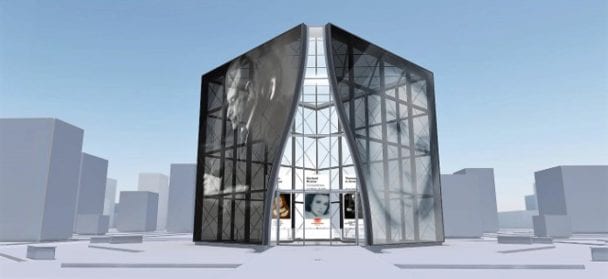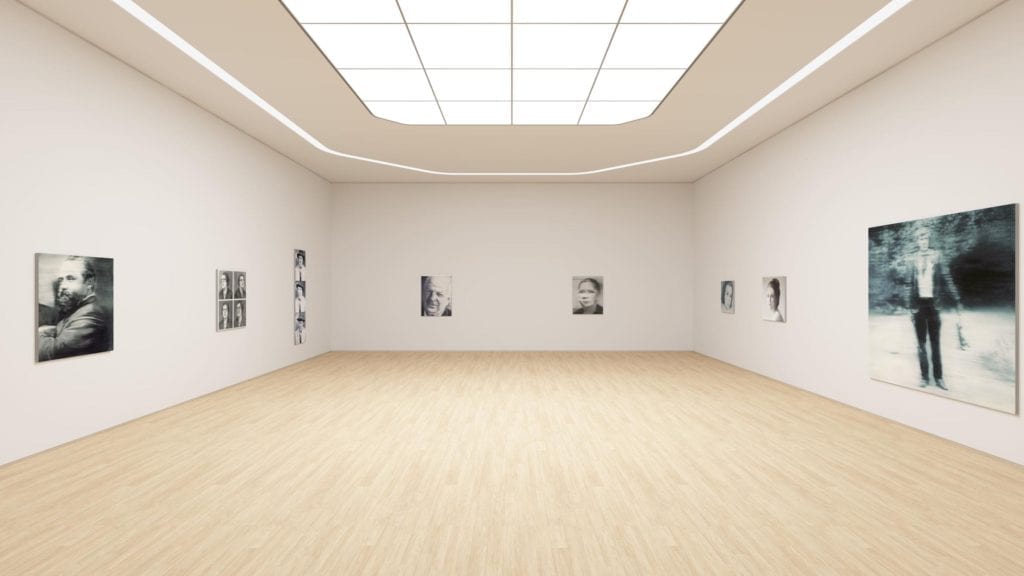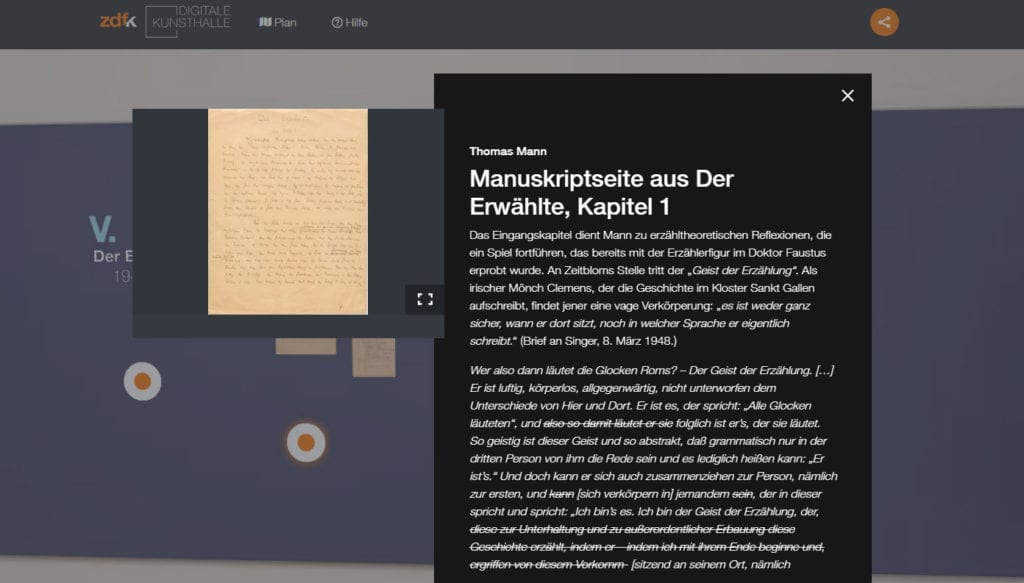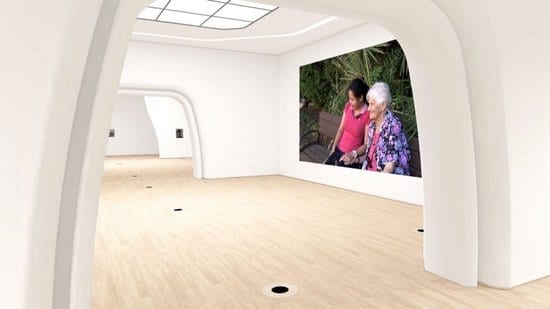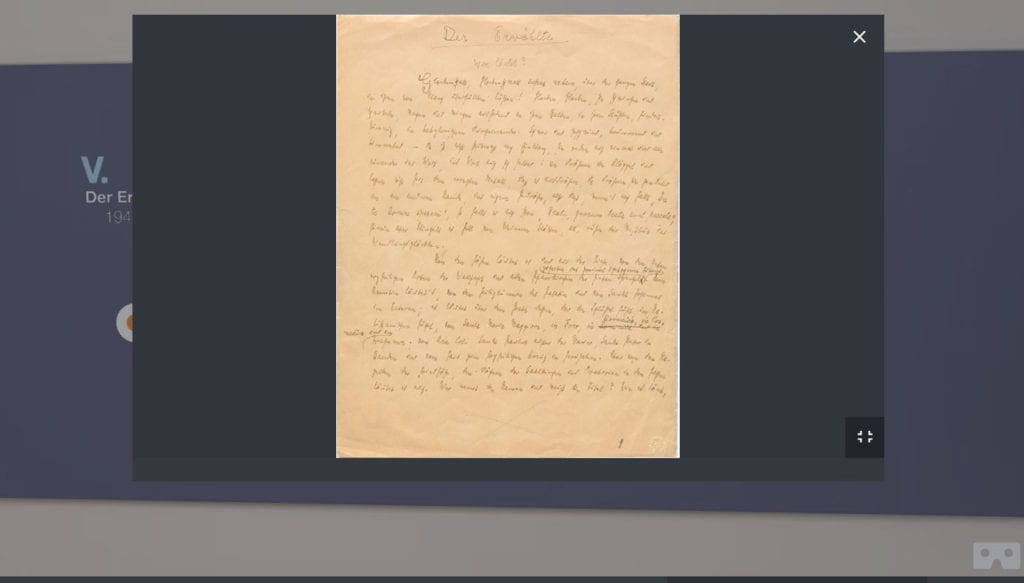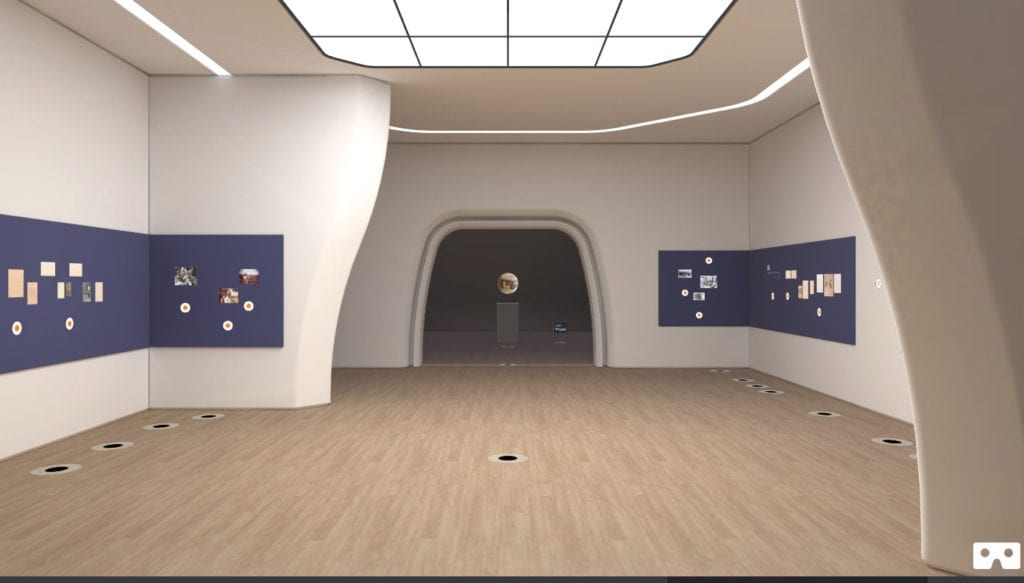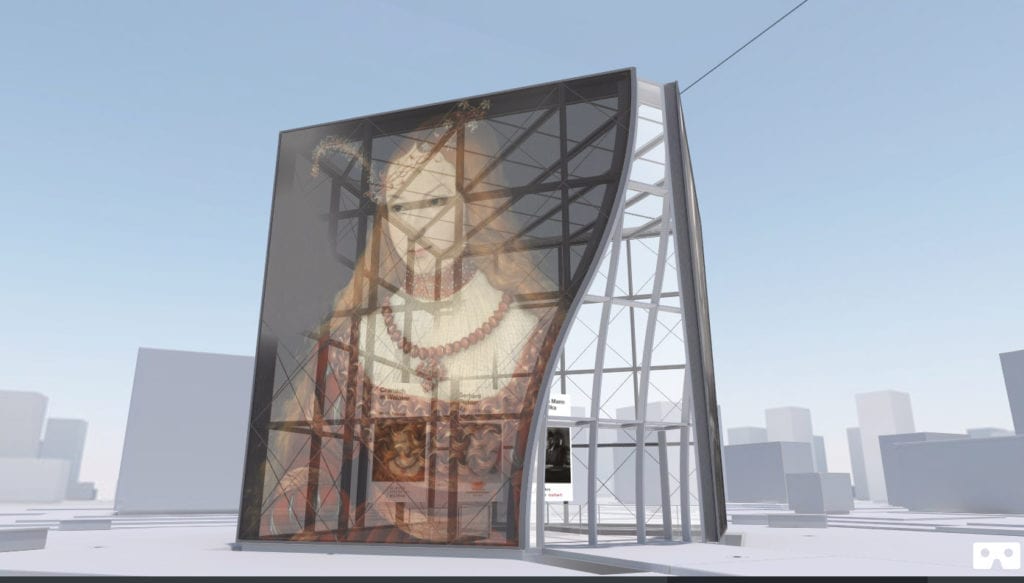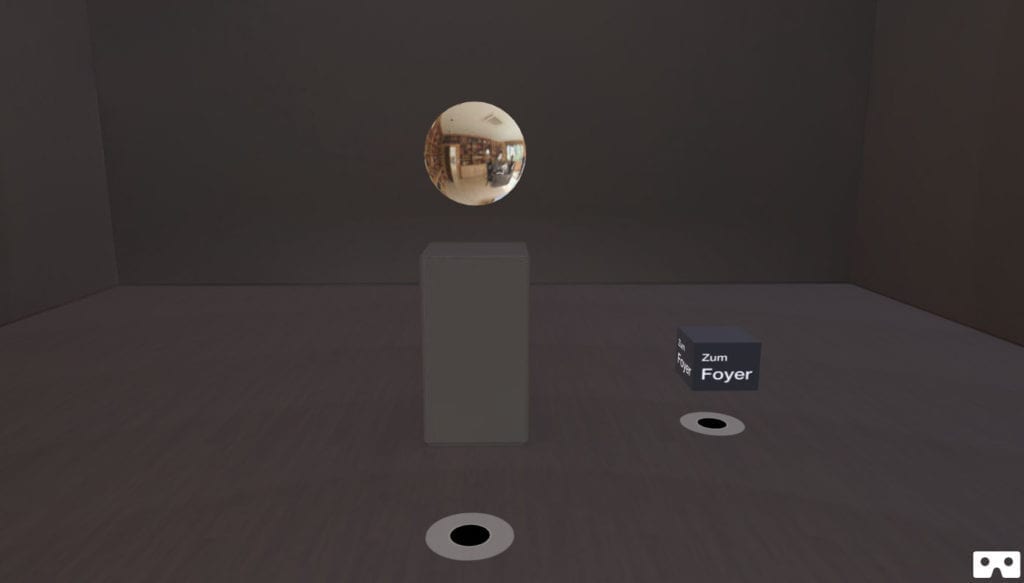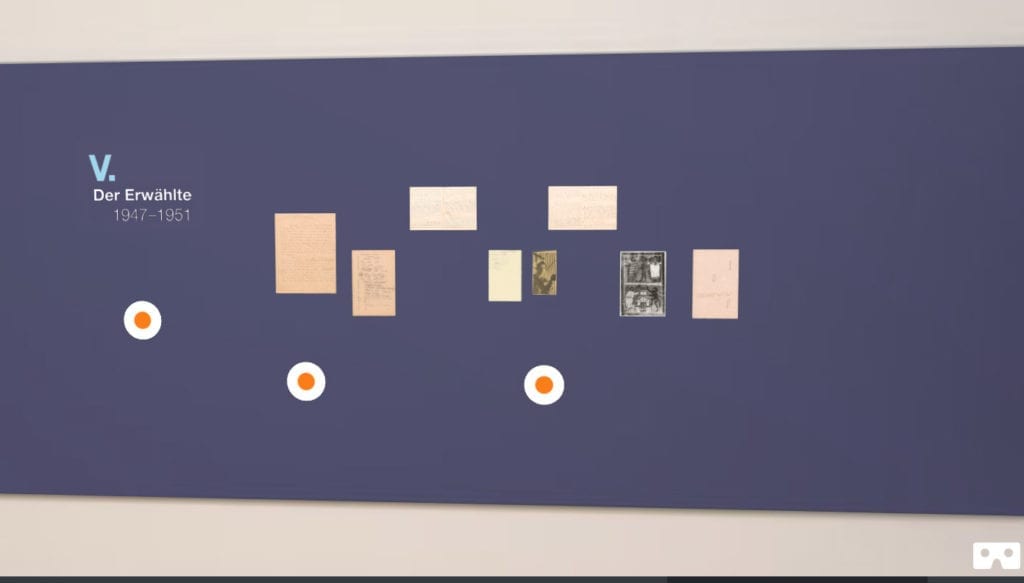You don’t need a ticket, you can also visit it 24 hours non-stop and stroll through the halls and admire the masterpieces of art. The project “digital art gallery” – a cooperation of ZDFculture with various German museums – is a world novelty and a promising model for the future, which offers an uncomplicated and flexible access to art. The innovation has just been launched under great media hype to the public. The development of the virtual Art enjoyment was created by ZREALITY, the virtual reality specialists from Kaiserslautern.
It looks real and touchable, the white ermine coat, the Elector
Frederick the Wise of Saxony carries around his shoulders. The painter
Lucas Cranach the Elder masterfully brought the precious fur, which was
worn in the 16th century as a national emblem, on to the canvas. In
three paintings side by side
the Elector confidently stands for the visitors in the large museum
room. These pictures are not actually open to the public at the moment
because they do not hang in the Weimar Castle as usual, but are locked
up in the depot due to reconstruction work.
The fact that they can still be seen – at any time and in any place – is
new and spectacular. In cooperation with numerous German museums, the
TV division ZDFkultur has opened a new book on art presentation in the
form of a virtual art gallery. Art is now coming to people.
Art To Go
“Within an interactive web module, the visitor moves with a mobile phone or tablet through a museum that does not exist in reality,” explains Michael Neidhöfer, CEO of ZReality. The Kaiserslautern-based virtual reality company develops virtual presentations for a wide variety of areas – for the industrial market as well as for the cultural sector. The idea behind the “digital Art Hall” is to bring together works from museums all over the world in a single art space. “In the future it might be possible to see images from the Louvre Paris, the Moma New York or other world-famous and smaller galleries and museums and private collections in one place,” says Michael Neidhöfer.
How can one imagine such a visit to a virtual museum as such? “Like a
real visit to a museum,” says Neidhöfer, “only that you don’t walk
around, but you can also get a taste of art from the couch or café.” And
that’s far from being the only advantage. The application has features
that go far beyond a real museum visit: Background information on the
picture, the artist, the time in which the artist lived and much more
can be called up directly. “It’s a great added value to be informed
beyond the pictures and above all to be entertained,” says Neidhöfer.
The media hype was great when the project was presented to the public.
“The response was very positive,” says Yvonne Abbel, Head of
Interactive, Digital Media at ZDF Digital. She was involved in the
project right from the start. “Some museums have already attracted
attention.
Museum visit in pocket format
This is not surprising, since museums believe that this tool offers a
great opportunity to reach a broad public. Art suddenly becomes
accessible to everyone. Even for those who have not yet dared to cross
the museum threshold, as well as for non-art experts. In this way, even
the less art-conscious get an easy and neutral access to art. Anyone who
now thinks that the virtual tour is a two-dimensional experience, a
copy of a real museum on a mobile phone, will be positively surprised.
“Everything that makes up a museum atmosphere, such as rooms, lighting
conditions and information boards, were integrated into the virtual
museum concept using innovative technology and multimedia content,”
explains Michael Neidhöfer. “The virtual visit becomes an exciting tour
and thus a completely new experience”.
The “digital Art Hall” kicks off with works by Lucas Cranach the Elder
and the Younger and – in cooperation with the Gerhard Richter Archive of
the Dresden State Art Collections – works by Gerhard Richter, one of
the most important contemporary German artists, which have never before
been shown in this compilation. The exhibition “Thomas Mann in Amerika”
of the Museum of the German Literature Archive in Marbach will also be
shown.
Art 4.0.
“Real exhibitions are also planned, which can be virtually extended
in the digital Art Hall,” says Yvonne Abbel. “In this way, thematic
exhibitions of artworks that are scattered all over the world and that
never would be brought together in one place are also possible,” she
adds.
“You have to let it melt on your tongue. Art presentation always and
everywhere. A dimension you can’t even imagine today,” says Michael
Neidhöfer. “Not only in the field of art, where museums can expand their
exhibitions with such a system, but also for the industry this
technology brings undreamt-of possibilities when it comes to innovative
product presentations, for example in virtual showrooms.
The digital Art Hall is only one area of the new digital art space ZDFkultur, whose contents can be accessed in the ZDF Media Library. A total of 35 partners, including cultural institutes, museums, theatres and opera houses from all 16 federal states, are involved in the content of ZDFkultur. ZDF director Thomas Bellut at the presentation of the new format at this year’s Berlinale: “We make cultural content available to everyone at any time. We benefit from the diversity and expertise of our partners and contribute our own reach and journalistic expertise”.
Malu Dreyer, Minister President of Rhineland-Palatinate and Chairwoman of the Broadcasting Commission of the Federal States of Germany, also said at the opening: “With ZDFkultur, ZDF shows how the public service programming mandate can be fulfilled in an innovative and attractive way in the digital age. As a virtual meeting place for people engaged in and interested in culture, the new format offers both simple and comprehensive access to culture”.
Does the digital Art Hall take visitors away from real museums? “No,” says Yvonne Abbel, “art is much more likely to become accessible to an even wider public and gives people an appetite for art and culture in real life. By the way, barrier-free, too.”
Visit the virtual museum by clicking on the link below!

